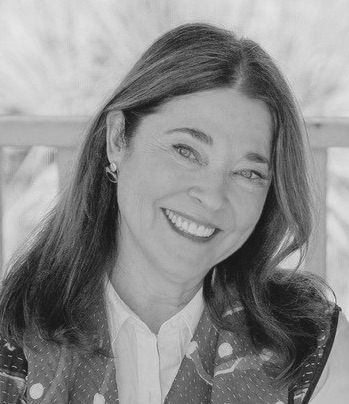Every book I write is a journey. Yet the writing of The Summer of Lost and Found was, like the year 2020 it was written in, an experience like no other.
For the past twenty years I have written books in a process that I had designed to help me create themes I developed from the species or environmental issues I chose as the novels’ backdrop. It started in 2000, when I became a member of the Island Turtle Team in South Carolina. I still am! Working daily with the loggerhead sea turtles and the public on the beaches, I saw clearly that critical issues faced the survival of the turtles that most of the public was not aware of yet. I asked myself, what could I do to help? How could I use my books as a force for good?
I write fiction. I am a storyteller. I didn’t want to write nonfiction. Rather, I hoped to bring readers into my world, to make them aware and inspire them through the power of story. Emotion is a powerful tool. So, instead of my usual process of creating a novel around archetypal themes, I created themes based on what I’d learned from the animals to let the education come from themes, setting, plot, dialogue, and even characters. What were the parallels between nature and human nature?
That first book was The Beach House, published in 2002. It was unlike any book I’d read before or written. I set the mother-daughter reconciliation novel against the backdrop of the summer nesting season of the loggerhead sea turtles. And readers responded. Back in the day before the internet, The Beach House shot to The New York Times bestseller list solely because of good old-fashioned word of mouth. I was jubilant because the success greenlit my course to continue this path to write novels set against a species. And it confirmed my belief, my observation, that readers do care and want to learn, even while reading for pleasure and/or escape.
Whenever I had something I wanted to share about the sea turtles or animals on my beach, I wrote another book in what has become Mary Alice Monroe’s The Beach House series. The Beach House has also been made into a Hallmark Hall of Fame film, starring Andie MacDowell.
For the past twenty years, I’ve continued this process. I don’t choose a topic for the novel. I choose a species. This involves intuition, which I fully trust. Joseph Campbell called artists of today the equivalent of shamans of past societies. I’ve learned to be like the turtle and trust my instincts.
After I chose the species, I began an academic research, extensive interviews with experts in the field, and finally, the work that teaches me the most: hands-on work experience with the animals. From all the research and experience, I derived my story. Or, as I like to say, the animals tell me the story. By the time I write the first word, I know my themes, plot, characters, setting, and often, the end.
It’s been a marvelous journey. In addition to the sea turtles, pelicans, and shorebirds in The Beach House series, I wrote a series set against the Atlantic bottlenose dolphins in The Lowcountry series. I traveled across the United States to Mexico following the monarch butterflies for The Butterfly’s Daughter. I rescued and rehabilitated eagles, hawks, owls, and other raptors for Skyward. I’ve written books set against catch and release of trout in Time is a River, horses in The Summer Guests, and the vanishing shrimping industry in Last Light Over Carolina. I’ve even tried my hand at making sweetgrass baskets for Sweetgrass.
Everything changed for my new novel, The Summer of Lost and Found. Like everything else in my life, the pandemic brought my world to a halt. I had a few species in mind to begin working with at the dawn of 2020, but what I’d thought would be a delay in my ability to fly out to do field research became a shut down.
Like many of you, I sheltered in place in my house in the mountains. Looking around, I became aware that the pandemic was hitting some in my family hard. Two of my sisters were trapped in apartments in Los Angeles and Chicago, unable to work. My niece who worked in the service industry was out of a job. I invited these women to my mountain house for the summer. We created our own pod. Over the summer, it dawned on me that what I’d thought was an obstacle could be an opportunity.
My novels are centered around the relationships in a woman’s life—mother-daughter/son, husband and wife, sisters, friends. I write family sagas. What could be more intriguing than to write about the changes and challenges families were facing with forced isolation, togetherness, and economic strain? I sought to write about this phenomenon we were living in—not about the COVID-19 illness, but family dynamics. And how better to explore this than with a family I knew so well—the Rutledge family of The Beach House series.
I wrote this novel in real time—and what a roller coaster journey it has been! I let go of a process that had worked for me for two decades and went boldly into the story. I write from structure and yes, I did begin with an outline. The challenge came, however, when living through the weeks and months of the pandemic year, my perspective kept changing and I threw out my outline. I was introducing the next generation in the series and recognized that the problems of 2020 were different for the older generation than the younger.
After the original shock and fear of a global shutdown, we went through the five stages of grief: denial, anger, bargaining, depression, and finally, acceptance. Our defense strategies shifted to coping strategies. What I wanted to say in April was different in July and changed again in November… Rewrite followed rewrite. I pulled my hair out, cursed the characters, the story, swore I would never do this again. It was a long, arduous process.
By the year’s end, I read my novel for the last time, tweaked the final words, and smiled with satisfaction and relief. My story was told. And I did it. I’d sharpened and shared my perspective of 2020 through the voices of my characters, especially the two Rutledge women of two generations: Cara and Linnea. And isn’t that the power of story?
I learned in this year of change that despite the frustrations, delays, cancellations, and angst, there were also discovered opportunities for togetherness, solitude, reflection, and appreciation of the here and now. For in truth, we can’t make plans. Hindsight is 20/20, except in 2020! The key word for the year was—and continues to be for a while longer—pivot. As my character says in The Summer of Lost and Found, “If it’s not one thing, it’s another.” As frustrating as that may be at times, it is also freeing. This is part of the stage of acceptance. Let’s enjoy what we do have. We have today. We have our health. We can find ways to be creative, to connect with loved ones, to be compassionate to others and to ourselves, to laugh. To live each day to the fullest.






